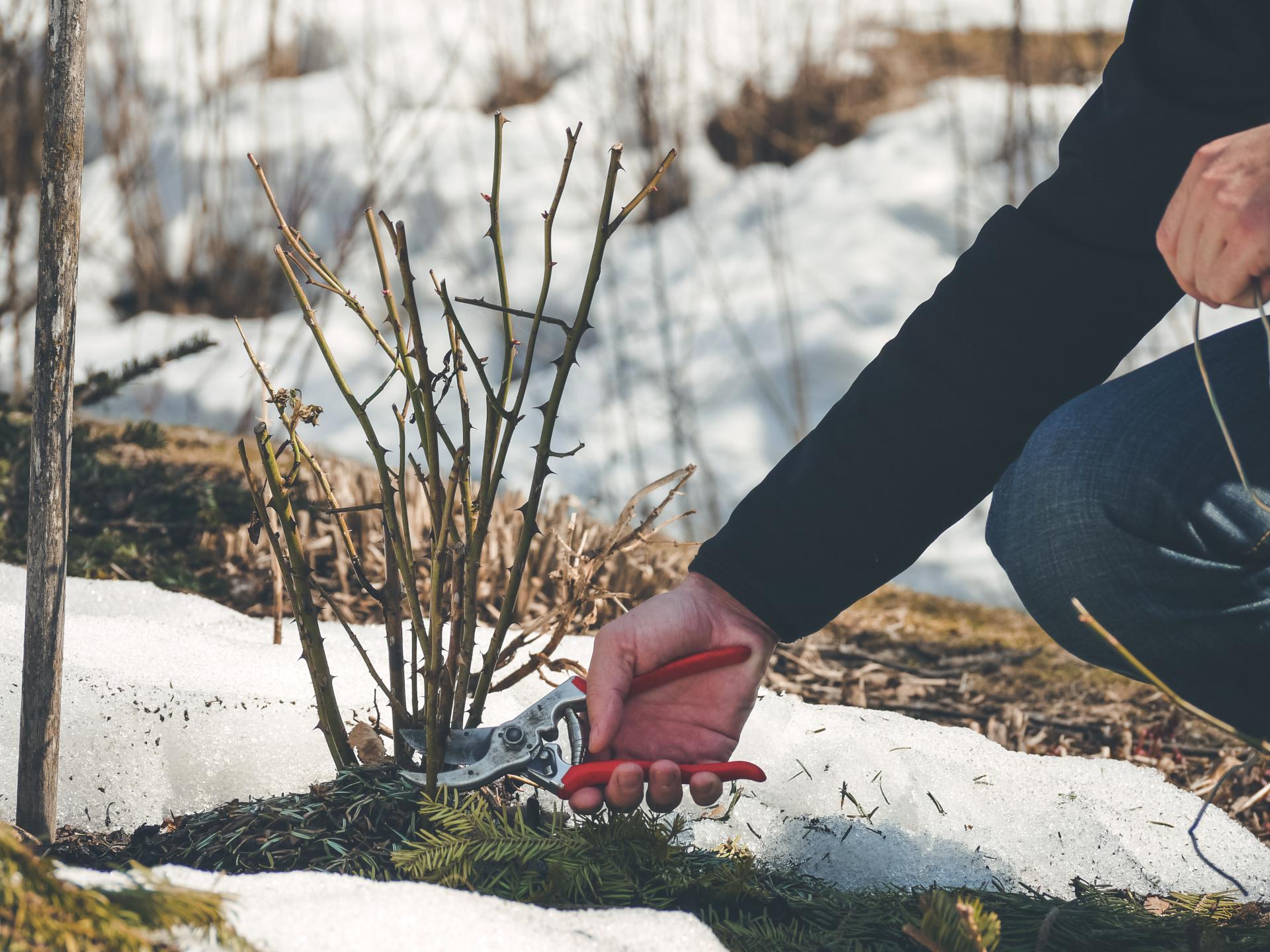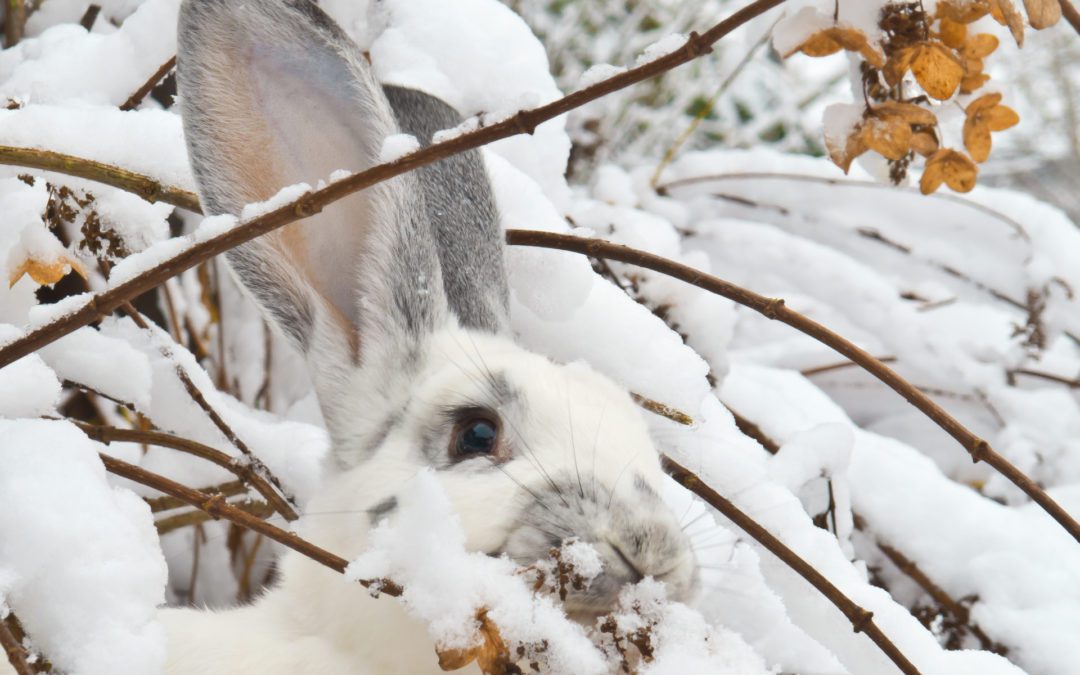Protection from Rabbits, Deer and Other Critters
The bark of your expensive landscape shrubs is winter food for wildlife. They are actually after the nutritious inner layer known as cambium, but when the protective bark is chewed through, the shrub can suffer from disease and insect infestation. When the inner bark is damaged, the plant can’t pull water and nutrients that it needs from the roots.
One way to problem-solve chewing, is to plant inedible woody shrubs and vines such as holly, Oregon grape, currant, lavender and rosemary. Shrubs resistant to deer are the lovely Japanese Maple, lilacs, butterfly bushes, Rose of Sharon and boxwood. If food is scare though, deer will eat almost anything. Barrier fencing is effective when creatively adapted into your landscape design. Rabbits and porcupine cause girdling damage above the snowline but mesh fencing or flexible plastic guards can be applied to the trunk to prevent this damage.
Trimming and Pruning
Like trees, shrubs need trimming and pruning for health. Winter is the best time to prune, as there’s less foliage in the way so you can see precisely where you are cutting, and the process is less stressful on your woody shrubs in cold temperatures. Plants clipped in winter are less susceptible to fungi and insect infestation. Pruning promotes vigorous new growth in the spring when temperatures rise, and the sun shines brighter for longer periods of time. Trimming protects your shrubs through the winter because it removes long thin branches that can load down with snow and break. Broken foliage makes the shrub vulnerable to disease and other pests after the ground thaws. When trimming rose bushes, remove dead or broken stems and branches into healthy wood. Cut suckers as close to the soil as possible so the energy with spring growth, can go up into the main stem or stock of the plant. Newly planted roses should not be pruned, as they take a year to get established, so you may want to wrap them, and other shrubs, with burlap.

Wrap Your Shrubs For the Winter Months
Burlap wrapping holds the branches together so they don’t get broken, and protects against the dehydrating effects of freezing wind. Wrapping your shrubs is also especially effective for protecting road facing shrubs from salt that may be spread during snow removal.
Call Us
Questions? Call the team at Emerald Irrigation & Landscape Construction in Penticton for all your landscaping needs. We have over three decades of experience working in landscape, irrigation and design.

